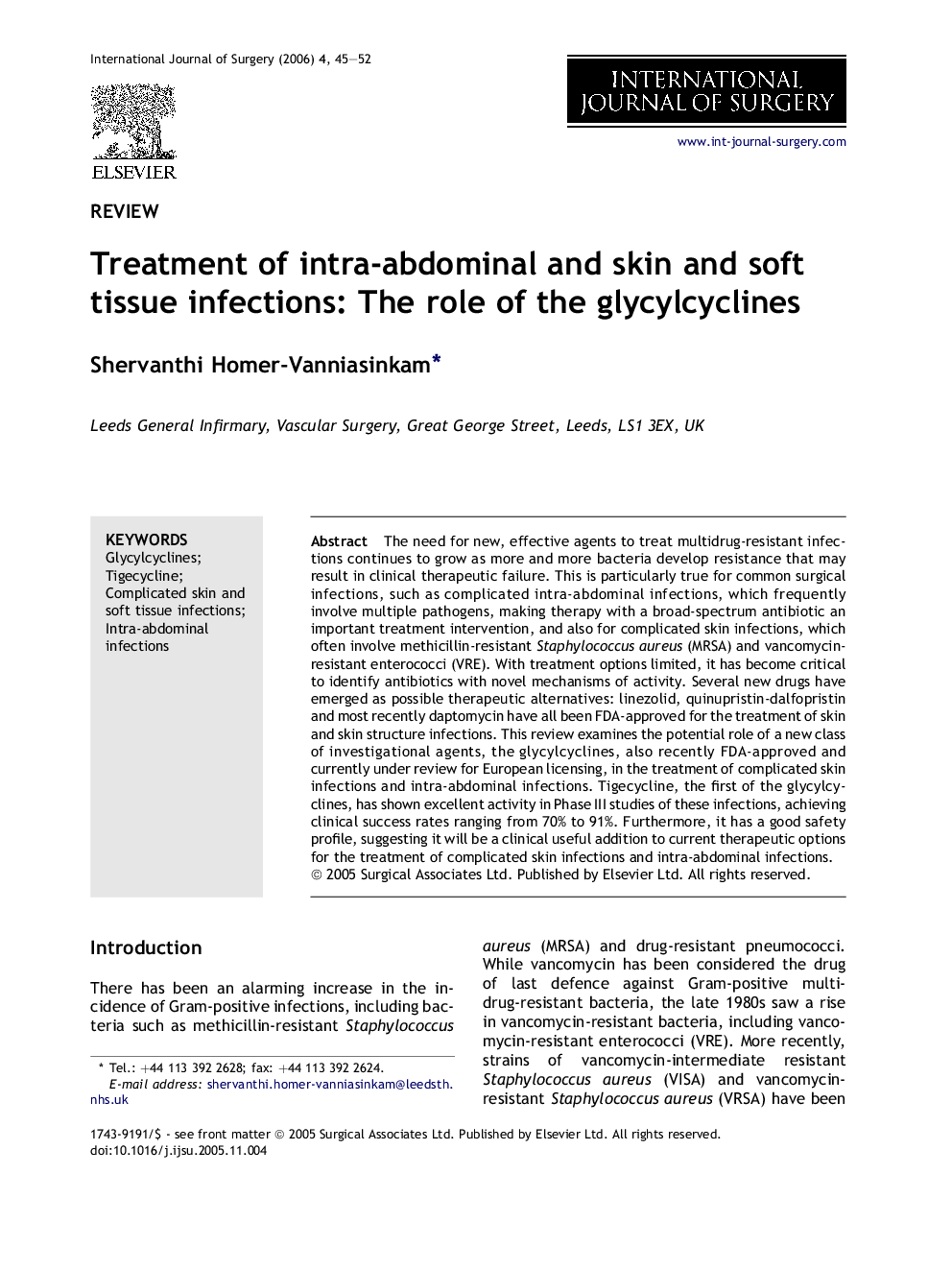| Article ID | Journal | Published Year | Pages | File Type |
|---|---|---|---|---|
| 4287425 | International Journal of Surgery | 2006 | 8 Pages |
The need for new, effective agents to treat multidrug-resistant infections continues to grow as more and more bacteria develop resistance that may result in clinical therapeutic failure. This is particularly true for common surgical infections, such as complicated intra-abdominal infections, which frequently involve multiple pathogens, making therapy with a broad-spectrum antibiotic an important treatment intervention, and also for complicated skin infections, which often involve methicillin-resistant Staphylococcus aureus (MRSA) and vancomycin-resistant enterococci (VRE). With treatment options limited, it has become critical to identify antibiotics with novel mechanisms of activity. Several new drugs have emerged as possible therapeutic alternatives: linezolid, quinupristin-dalfopristin and most recently daptomycin have all been FDA-approved for the treatment of skin and skin structure infections. This review examines the potential role of a new class of investigational agents, the glycylcyclines, also recently FDA-approved and currently under review for European licensing, in the treatment of complicated skin infections and intra-abdominal infections. Tigecycline, the first of the glycylcyclines, has shown excellent activity in Phase III studies of these infections, achieving clinical success rates ranging from 70% to 91%. Furthermore, it has a good safety profile, suggesting it will be a clinical useful addition to current therapeutic options for the treatment of complicated skin infections and intra-abdominal infections.
